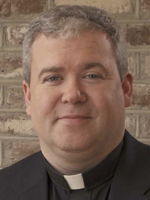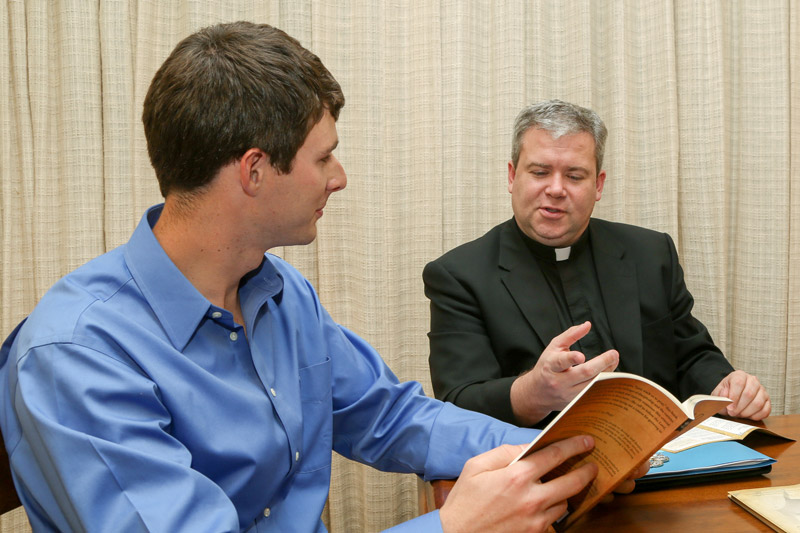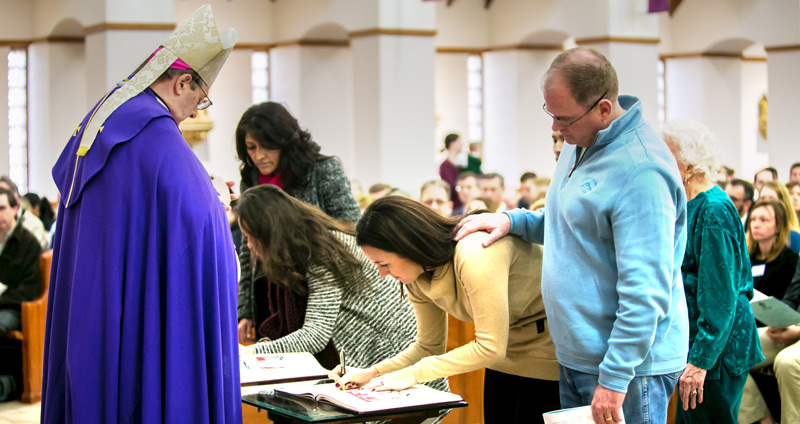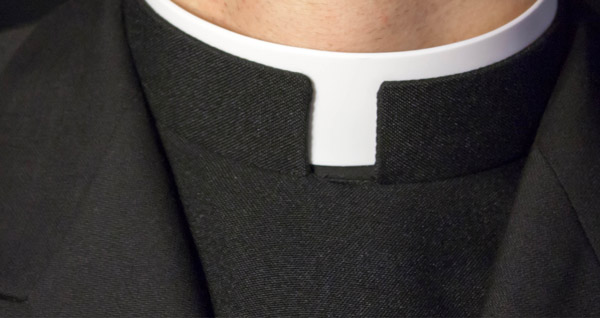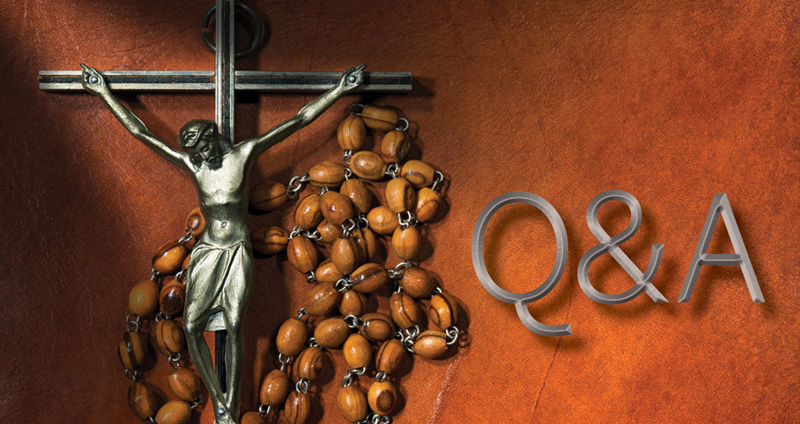
Q: Growing up, I always heard of people receiving the “last rites.” How is that different or similar to the anointing of the sick in churches today? (Charlotte, NC)
A: The Lord Jesus instituted seven sacraments. The sacrament that extends the Lord’s healing power is properly called the anointing of the sick. This sacrament is given to believers so that the Lord’s grace and healing power can be with them in times of suffering or illness.
In the history of the Church, other names have been given to this sacrament, such as extreme unction or last rites. These names designate the use of the sacrament for those who are actively dying. While certainly the sacrament can be given in such circumstances, it should be noted that this is a unique celebration of the sacrament. I say “unique” because the sacrament is principally focused on healing and the restoration of health. As such, it’s helpful to highlight that the name of the sacrament is the anointing of the sick (not the dying or the dead).
Cultural titles from the past have stressed the use sacrament of the sacrament for the dying and for good reasons. We should all want the graces of this sacrament as we are concluding our time on this earth, but we should also actively seek out this sacrament when we are ill or suffering and need good health.
Incidentally, and not to confuse matters, but the term “last rites” can still be appropriate when the anointing of the sick is used for the dying and is celebrated alongside the hearing of a person’s last confession or the granting of the apostolic pardon, the giving of viaticum, which is a person’s last Holy Communion, and the offering of the prayers of the dying. In this context, the term last rites designates this series of rites given by the Church to the dying (and not just the anointing of the sick).
Q: In a previous column, you wrote “our bodies and souls will be joined for judgment.” Could you explain that some more? My mother was cremated and buried and her grave was blessed. I’m concerned about her soul not having a body. (Lancaster, SC)
A: At the end of time, our bodies will be raised and glorified. Our glorified bodies will share in the judgment of our souls (which was given at the time of our death). This belief is declared in the Creed as we pray together, “I look forward to the resurrection of the dead and the life of the world to come.”
When our bodies are raised, most of them would have become “dust unto dust.” And so, it won’t matter whether our bodies were buried or cremated. They will be raised in beautiful array and share in the Lord’s judgment of our souls.
Incidentally, when this happens, time will end and the whole of creation will be revealed. The souls in hell will lament forever as the Lord Jesus presents his kingdom of the elect to God his Father.
Q: You recently mentioned spiritual classics. Could you suggest a few such books, especially for someone who’s new to the spiritual life? (Summerville, SC)
A: Well, shamelessly, I’d recommend my own book, “Lord, Teach Us to Pray”. It was written for the beginner in the spiritual life. But other, more established titles would include: “Introduction to the Devout Life” by Saint Frances DeSales, “Prayer for Beginners” by Peter Kreeft, and “Fire Within” by Father Thomas Dubay.
Father Jeffrey Kirby is administrator of Our Lady of Grace Church in Lancaster. Because he is moving on to other projects after the summer months, Father Kirby is no longer taking questions for this column.

